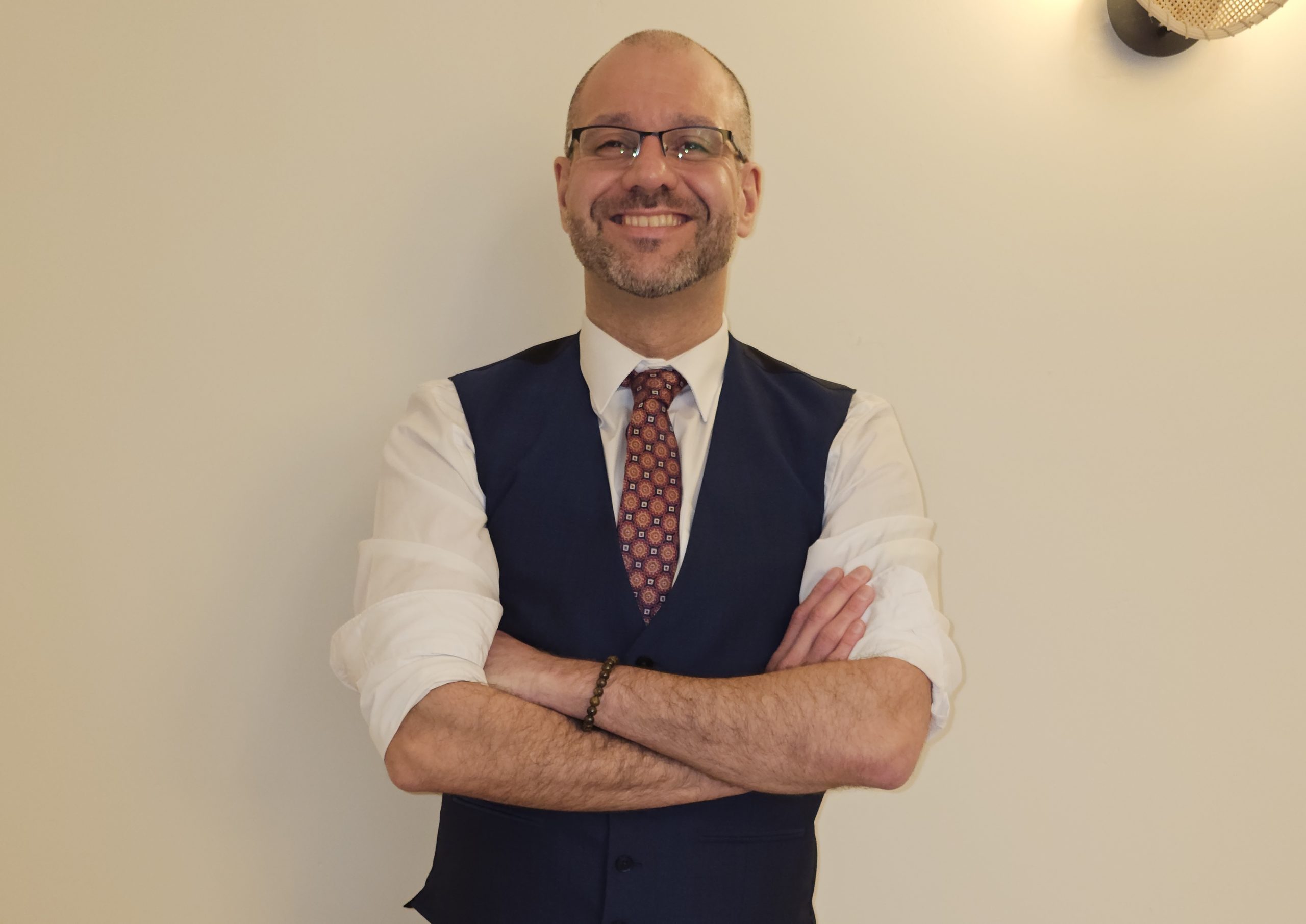After having had toxic shock syndrome before in 2014, 38-year-old Naj Devgun developed sepsis after a routine operation in April 2023.
His reluctance to call in sick to work meant that he came close to never seeing his 18-month-year-old daughter again – and so he is sharing his story to encourage others to ‘Just ask: Could it be sepsis?’
Naj had a procedure to remove some loose skin, and developed a spot on the scar that he left without getting it looked at. He felt unwell over the course of a week at work, but struggled through a performance review meeting, before coming home at midday and asking for some strong painkillers. His wife – alarmed at the fact Naj never normally asks for pain relief – insisted on taking him to A&E. He said: “By the time I had gone into hospital I probably hadn’t slept in about three or four days and had a temperature, but I was just running on autopilot. The staff were unable to insert a cannula due to my shaking, my body felt like fragile glass, my skin was on fire whilst feeling frozen, I could not look at the lights, maintain concentration or speak coherently.”
He was immediately taken to ICU, where he experienced a dramatic drop in his condition. While drifting in and out of consciousness, he heard hospital staff tell his wife how critical he was. He said: “I was like ‘I’m in a lot of trouble here’. I just broke down a little bit at that point because it really occurred to me that I might not come out of this.”
“I remember looking at my wife and saying there’s a letter to Ameline in the bottom drawer of my office, and told her to give it to her on her 18th birthday.”
At Naj’s local hospital in Huddersfield, they pumped him full of IV antibiotics, before he was taken to Bradford Royal Infirmary Hospital the next day. Several litres of puss were surgically aspirated from his chest, and he continued to be treated for an advanced Strep A infection – which had caused the sepsis. He remained in hospital until the weekend.
After returning home from hospital, Naj struggled with the loss of independence and mental faculties that accompanied his stay in Critical Care, but found UKST recovery resources useful in setting realistic expectations. He said:
“One thing I didn’t expect was how your whole functioning just sort of ceases.”
“Reading was really difficult, and following TV programmes was really difficult. I didn’t know about post-sepsis recovery, and that was quite hard. I didn’t realise how much would grind to a halt.”
Shortly after his illness, Naj shared some of his lessons to others on LinkedIn. But he also struggled returning to work initially. He said: “The first two weeks I’d say it was really rough, because you’re constantly knackered and your brain can’t function on a high level, or even deal with simple things like spelling or like organising your diary.”
His recovery was further complicated, as he developed Functional Neurological Disorder, as a response to brain inflammation and trauma. This left him paralysed by seizures which lasted several hours. It was a long and difficult process for him to recover mentally from this ordeal. Naj said: “It was a relapse and recovery thing for a long time. In terms of the physical side, the GP kept a very close eye on me, and with the emotional side of it I did get counselling from the UK Sepsis Trust which was really good because you only really get a small amount on the NHS. My wife helped me a lot, but it was hard on her as well.”
Now, a year on, Naj is back to work and keen to share his story with others to encourage them to be aware of how quickly sepsis can strike, and how important it is to listen to your body during recovery and take things one day at a time. “Resilience can be a bad thing because sometimes your body’s telling you to stop,” said Naj.
